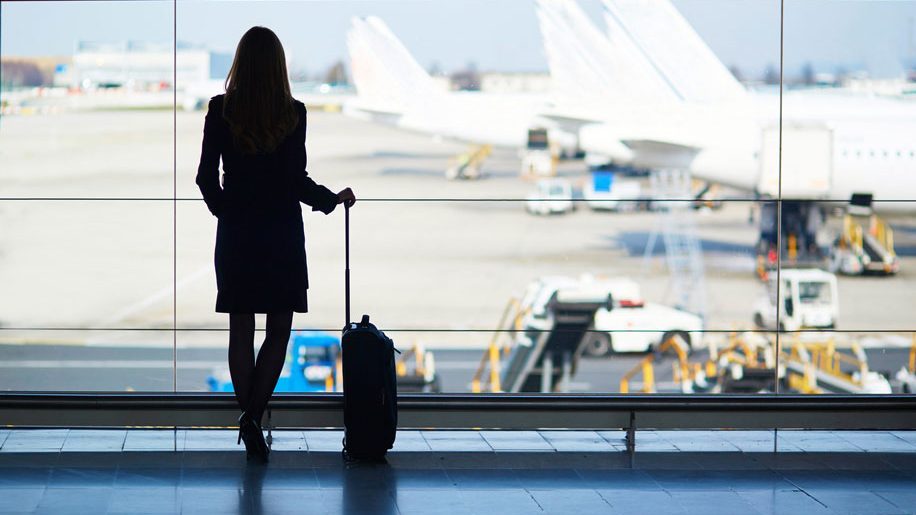
Back in the 1960s, Pan Am stated cabin crew must weigh no more than 130lbs (59kg), be unmarried, have no children and retire before the decrepit age of 32. Ah, the good old “trolley dolly” days of rampant misogyny when women were considered to be little more than decoration. Of course, having young, attractive females to serve drinks was a requisite part of the flight experience. And the odd pinch on the bum as they walked past? Perfectly acceptable.
Thank goodness we’ve moved on… except apparently we haven’t.
Things might not be quite as overt as the 1971 “I’m Cheryl. Fly Me” marketing campaign, but plenty of airlines still adopt the clichéd “sex sells” approach, shamelessly portraying their seductive female staff as reasons to buy a ticket.
Scanning through current cabin crew recruitment specifications is like stepping back in time. Many airlines require applicants to submit a photo and call for “weight to be in proportion to height”. Yes, there’s a health and safety requirement that cabin crew must be physically fit in the case of an emergency, but let’s not pretend this is the only reason for setting weight limits – and since when did having the face of a model improve your ability to deploy an emergency life raft?
Some airlines don’t even bother with such a pretence: Indian low-cost carrier (LCC) Spicejet seeks single females only, between 18 and 27 years of age, with an “unblemished complexion and good body language”. China Southern requires that women weigh no more than 55kg and that “the facial features are correct, the body is well proportioned and the complexion is healthy”. Vietnamese LCC Vietjet promoted a new route by cladding its flight attendants in bikinis and having them dance down the aisle. (Small victory: Vietjet was fined for this blatant act of male chauvinism.)
And then there are the comments made by Qatar Airways CEO Akbar Al Baker, who boasted that “the average age of [Qatar Airways] cabin crew is 26”, unlike the “grandmothers” on US airlines.
Sadly, I could go on. But I think you get the message. The role of cabin crew is to ensure passenger safety and provide customer service. To think that plenty of people still believe creating a pleasant in-flight experience means offering sexual titillation to a particular group of passengers is nauseating.
Don’t get me wrong. I love seeing an immaculately coiffured air crew sweeping through the airport: the vivid red of Vivienne Westwood’s Virgin Atlantic uniforms, the couture cape creations of Hainan Airlines, the chic suits and authoritative peaked cap of a captain. It adds a frisson of glamour and excitement that has always been associated with aviation, and as the frontline staff, cabin crew are an important part of representing the brand. But there’s a big difference between having sharply turned out brand ambassadors and objectifying female cabin crew.
Aside from being hugely distasteful, it is damaging: the #metoo movement has shown that entrenched opinions about women as sexual objects have led to an untold number of crimes. In a May 2018 survey published by the Association of Flight Attendants, two-thirds of US cabin crew reported sexual harassment, ranging from lewd comments to full-on groping. A recent Transport Workers Union survey found 65 per cent of Australian airline cabin crew have experienced the same thing. Making a work environment that is safe for females is finally being taken seriously on the ground; it’s time the same standards were applied to the skies.
In the last few years, several airlines have started to make changes to uniform policies: high heels are being ditched and growing numbers are introducing trousers as an option for female cabin crew, including British Airways, Virgin Atlantic, Ethiopian Airlines and KLM. In May 2018, Cathay Pacific became one of the first Asian airlines to agree to the same policy. “The stereotype of the flight attendant is very old-fashioned already: looking pretty, full make-up and wearing a skirt. It is a good time to have a revamp of our image,” said Vera Wu Yee-mei, chairwoman of the Cathay Pacific Flight Attendants Union.
It certainly is. Female cabin crew do not go through extensive training on how to extinguish fires, administer CPR, be on constant alert for possible terrorist threats, ensure passenger safety – and their hundred other tasks – just to be viewed as sexualised props. Let’s make sure that they’re not.












